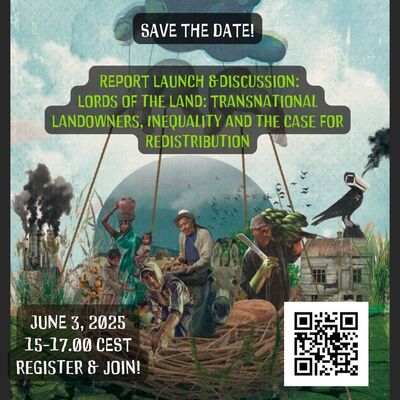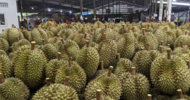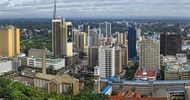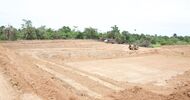There is a large gap between SOCFIN's “responsible management” policy and the reality of violence and destruction around its plantations, where, with the complicity of national governments, the company attempts to suppress people’s resistance.
Under fire from watchdogs and consumers of its smartphones, Samsung said it would not pursue a joint venture with Korindo amid an NGO campaign highlighting Korindo’s rainforest destruction for palm oil in Indonesia’s Tanah Papua region.
- Mongabay
-
14 September 2017
Australian beef processor Bindaree Beef announced it has sold a 51 percent controlling stake in the family-owned company to Hong Kong-Australian billionaire, Hui Wing Mau, and Beijing-based equity fund Archstone Investment for approximately $120 million.
NGOs in Sarawak and around the world report failures by the Sarawak government to uphold indigenous land rights, and failures by international banks and investors to ensure their investments are conflict-free.
Sierra Leone calls for urgent land audit. In the last five years, 30% of the arable land has gone to large-scale investors.
This practical guide focuses on investigating accountability and accountability politics in the context of the current global rush for land and other natural resources
Sierra Leone's Minister of Agriculture has called for a review of the flawed 50 year land lease agreement signed in 2011 between land owners and Socfin Agriculture Company
Malen Youth Development Union issues second complaint letter to SOCFIN about the grave abuses of workers at its oil palm plantations in Sierra Leone and issues of unfulfilled development promises for locals.
The Roundtable on Sustainable Palm Oil is reviewing its finding about the palm oil company’s activities in the Kapa people’s customary territory.
Over the past several years, a small band of grassroots advocates has been helping communities secure progressively better arrangements with investors interested in their land.
RSPO has issued a Stop Work Order to Goodhope Asia Holdings Ltd after joint submission by FPP, Pusaka, Greenpeace and EIA accused Goodhope’s subsidiary PT Nabire Baru of taking lands from the Yerisiam Gua people in Papua, Indonesia.
The company, PT Nabire Baru, is alleged to have grabbed indigenous lands. Its parent, Goodhope, is a member of the Roundtable on Sustainable Palm Oil.
Large land concessions are detrimental to the livelihoods of rural communities, who have drawn little benefit from these concessions and have had no effective remedy or recourse when their rights are infringed or violated.
Report gives an overview of the availability of information for land concessions in Brazil, Canada, Cambodia, Colombia, Indonesia, Liberia, Madagascar, Malaysia, Mexico, Myanmar, Papua New Guinea, Peru, Republic of the Congo, and Russia.
The fate of the Multi-billion shilling Yala swamp Dominion Farms project in Siaya hangs in the balance following a fallout between an America investor and Nyanza politicians.
Federal Government of Nigeria has opened negotiation with Peoples Republic of China over $4.5 billion loan to facilitate the production of agricultural machineries for large scale farming in selected states across the country.
- Naija247news
-
21 February 2017
The present crop of large-scale land lease agreements with MNCS in Sierra Leone are fraught with serious, challengeable, and voidable provisions. If they are not renegotiated, then going to court for specific impact litigation will be the only way out.
As Nigeria cashes in on the investment opportunities of import substitution, critical investments have been made by the Organised Private Sector, one of such being Triton farm projects on fish, poultry and crop production.
- Nigeria today
-
19 December 2016
Bidco Africa supported the highly controversial purchase of land in Kampala, Uganda, a UN probe has found. The finding draws the Kenyan-owned edible oils manufacturer to the centre of eviction claims by peasant farmers who are fighting the firm in court.
- Standard Media
-
23 November 2016
Meeting notes how land conflicts as a result of agribusiness expansion are proliferating throughout SE Asia and urges pause in the hand out of licenses while community and indigenous peoples’ land rights are secured.
- Borneo Today
-
08 November 2016
In its letter to the RSPO, Plantaciones de Pucallpa claims to have divested all its palm oil estates, land, related activities and equipment and PdP has no involvement in the Palm oil industry.
A worrying number of land grabs in developing countries involve European companies or are backed by European money – from banks, equity and pension funds, for instance.
- Global Witness
-
04 November 2016
Inclusive approach in concert with Mekong region partners forges unprecedented access to data and information on land
- Land Portal
-
21 September 2016
A Korean palm oil company has been dropped by buyers after footage emerged that allegedly shows the illegal burning of vast tracts of tropical forest on lands it holds concessions for in Indonesia.
- Guardian
-
01 September 2016
The report titled, Unmasking land grabbing in Ghana: restoring livelihoods; paving way for the Sustainable Development Goals (SDGs), narrates how land grabbing is affecting rural livelihoods and threatening food security the country in the long run.
- Vatican Radio
-
29 August 2016
Bidco is not pleased by the protestors who turned up last week in London to highlight the company’s palm oil operations, specifically in neighbouring Uganda.
East African protesters have taken to the streets of London to demonstrate against banks that do business with Bidco Africa, highlighting the connection between global financial institutions, The Prince of Wales and widespread deforestation in Africa.
A Chinese firm, Wuhan Longfecund Agricultural Development Company Ltd., has concluded plans to set up a feed mill and maize farm in Cross River State, Nigeria.
Today, the Ethiopian Ministry of Agriculture and Natural Resources with support from the European Union and Germany launched a 3.8 million euro project to support responsible agricultural investment in Ethiopia.
India, one of the world’s largest consumers and importers of pulses, may soon take over agricultural land in Africa and Myanmar to meet growing demand in its domestic market.
















